The following symbols are the most common symbols that appear on a map screen.
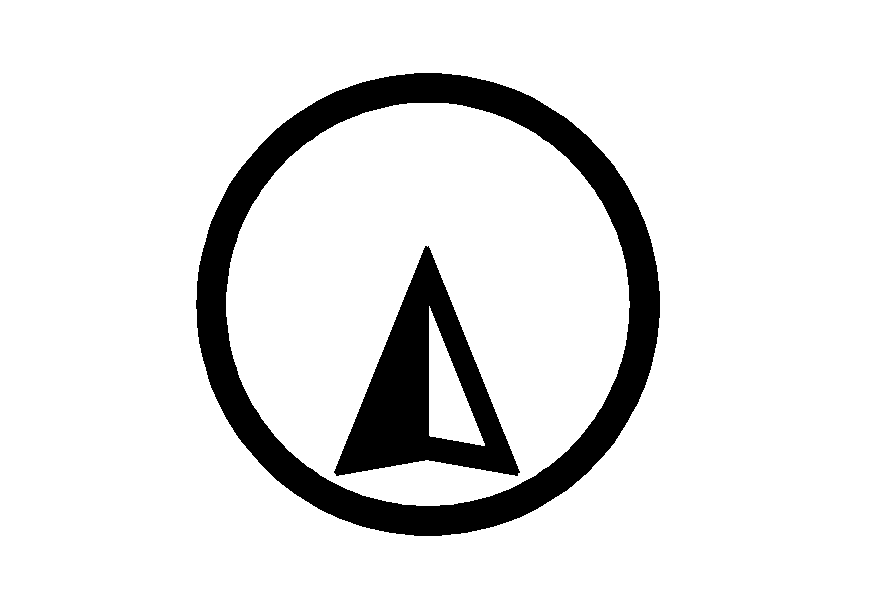
Your vehicle is shown as this symbol. It indicates the current position and the direction your vehicle is traveling on the map.
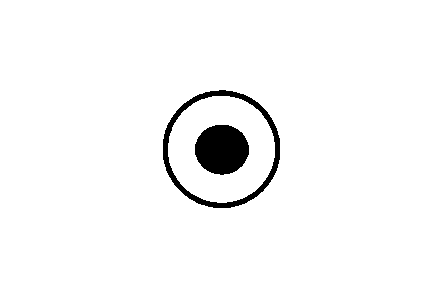
The destination symbol appears on the map, after a route has been planned, marking the final destination.
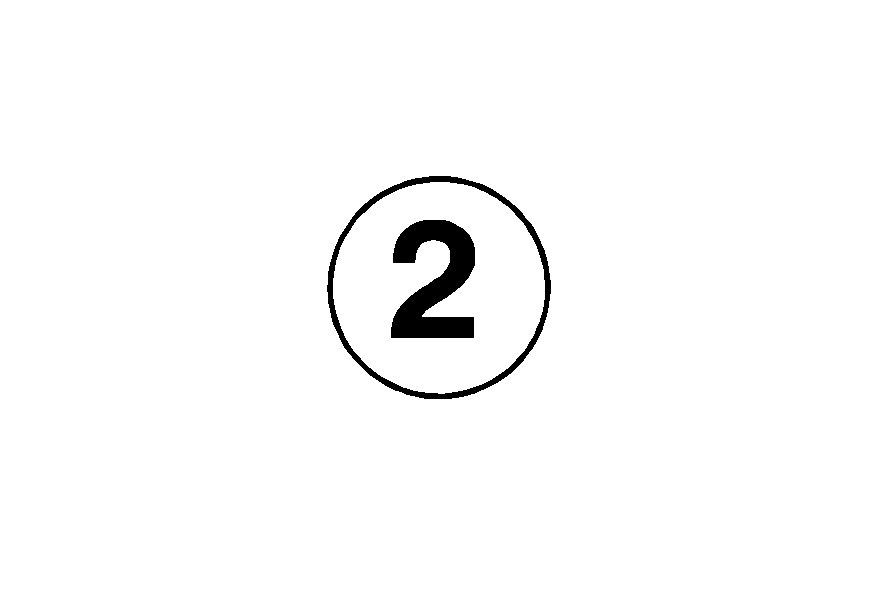
The stopover symbol displays on the map after a stopover has been added to the route.
The stopover symbols are numbered one through three, depending on how many stopovers have been set.
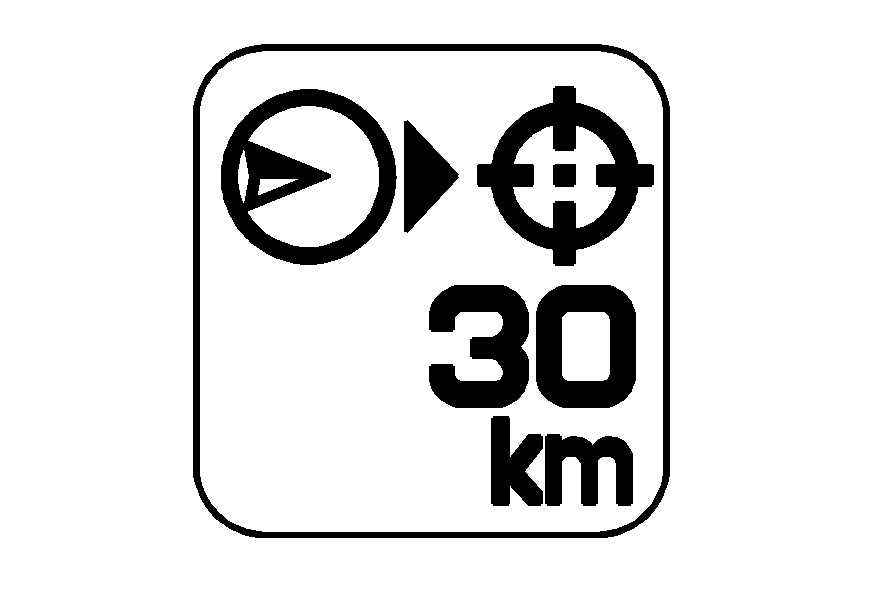
The distance to destination symbol indicates the distance to the final destination.
This symbol appears when the time to the destination is not available or while you are scrolling on the map.
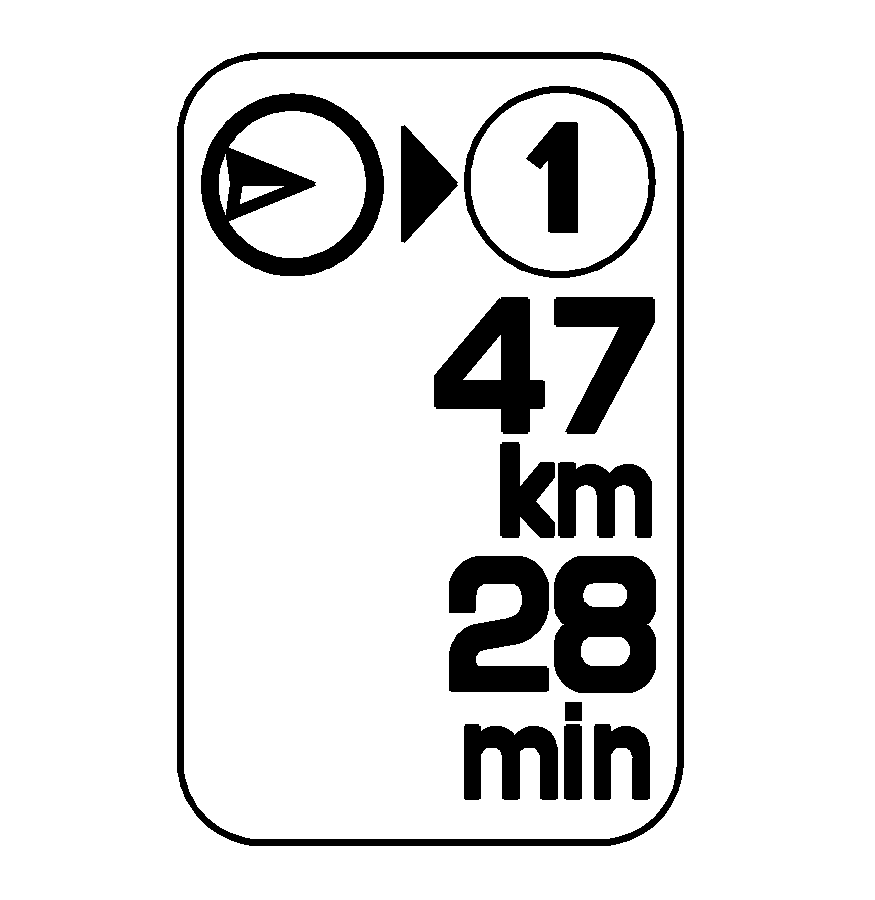
The distance and time to destination symbol indicates the distance and the estimated time remaining to your final destination, depending on the option selected.
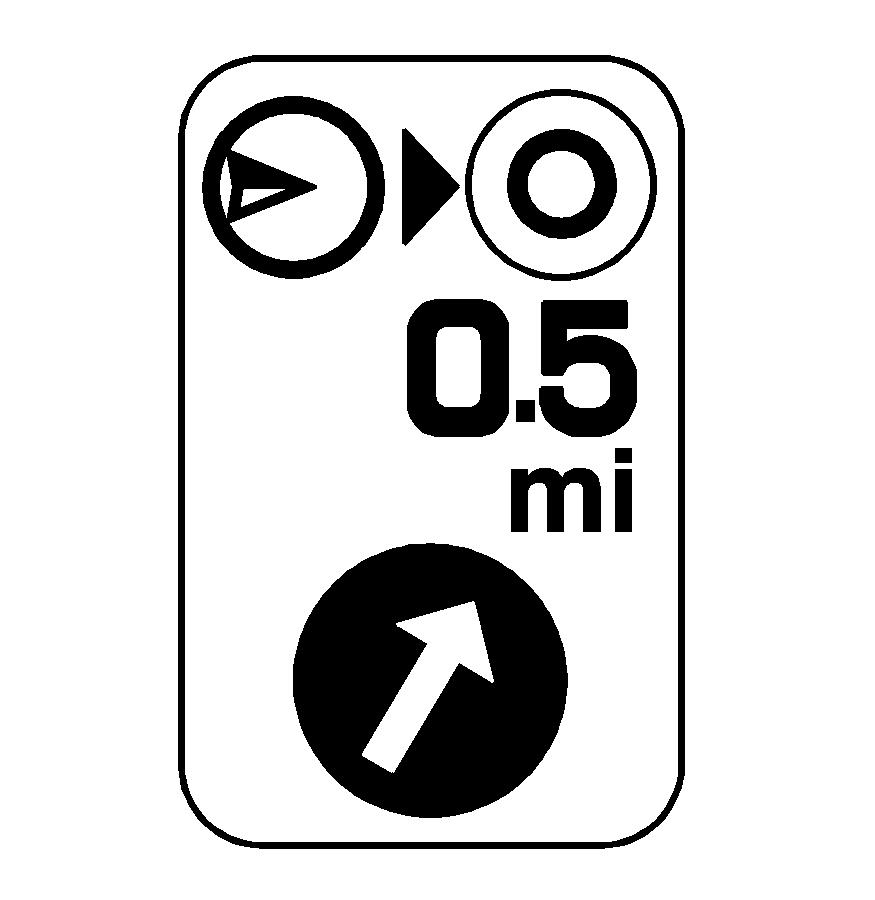
The straight line to distance symbol indicates the straight-line distance to your destination.
This symbol appears before you start driving on the route or if you are on a road where navigation guidance cannot be given.
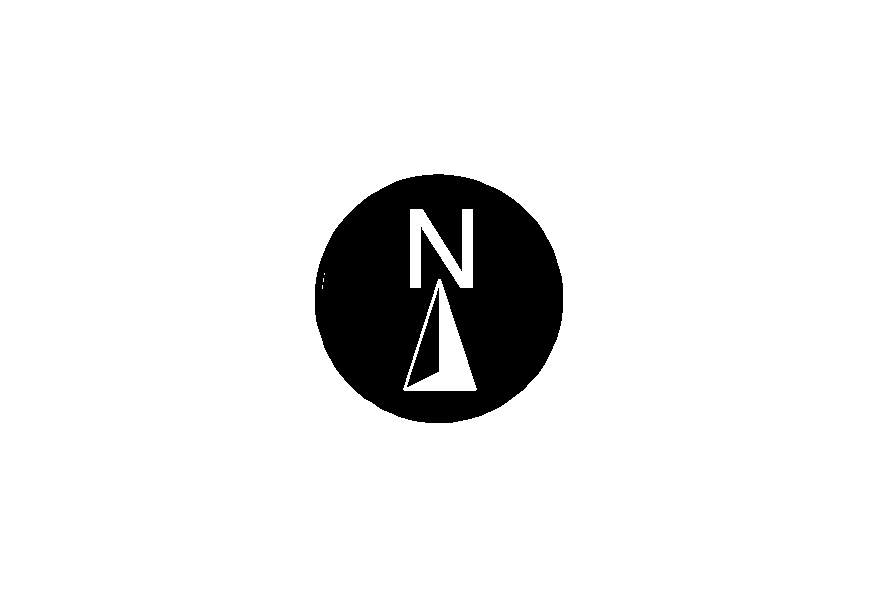
The north up symbol indicates the map with North Up, known as North Up mode.
While in North Up mode, the vehicle icon follows the north direction on the map regardless of which direction the vehicle is traveling. Select this screen symbol to switch between North Up, Heading Up, and 3-D view modes.
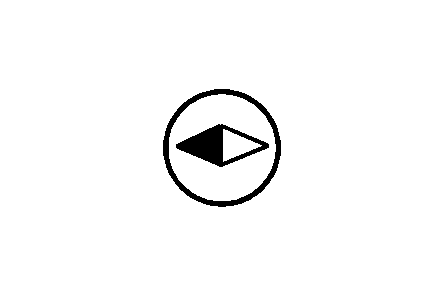
The heading up symbol indicates that the vehicle is traveling up on the map and is known as Heading Up mode.
The shaded triangle indicates the North direction. While in Heading Up mode the direction at the top of the screen and the way the vehicle icon is heading indicates the direction your vehicle is traveling. Select this screen symbol to switch between Heading Up, North Up, and 3-D view modes.
Three-dimensional (3-D) view mode changes the appearance of the map display to a road level view.
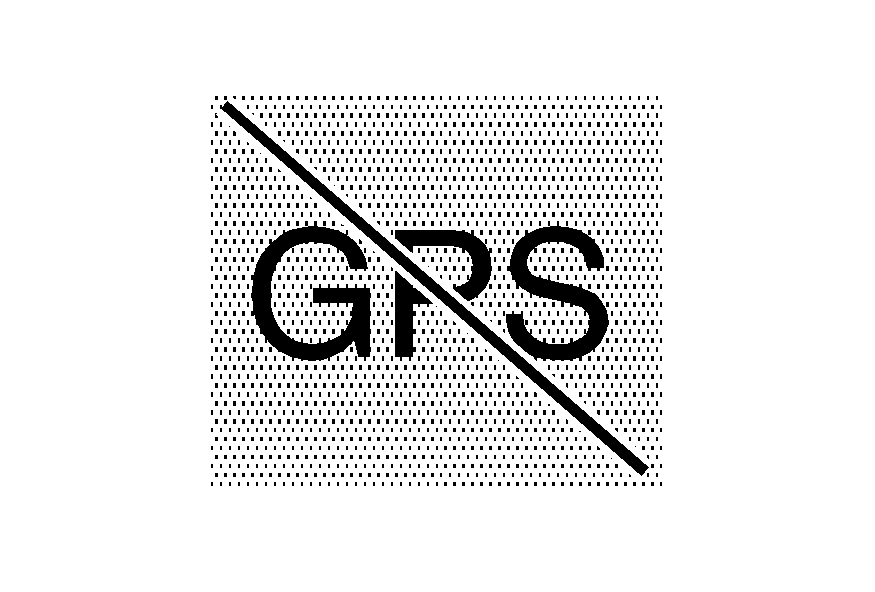
The No GPS symbol appears when your vehicle is acquiring or not receiving a Global Positioning System (GPS) satellite signal.
See Global Positioning System (GPS) for more information.
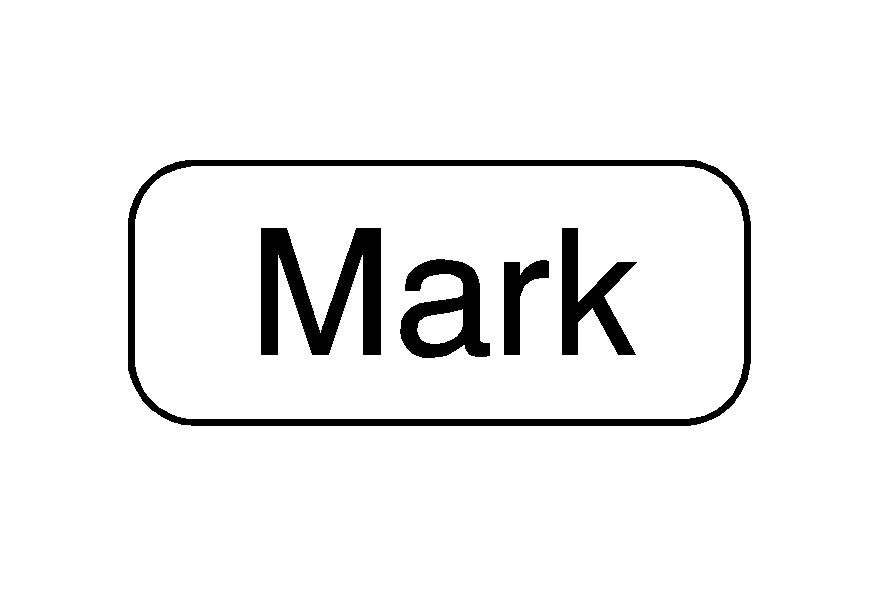
Select the Mark screen button to store the location on the screen in your address book.
The system automatically stores the point in the address book. See "Adding Destinations to the Address Book" under Destination for more information.
Displaying Points of Interest (POI) on the Map Screen
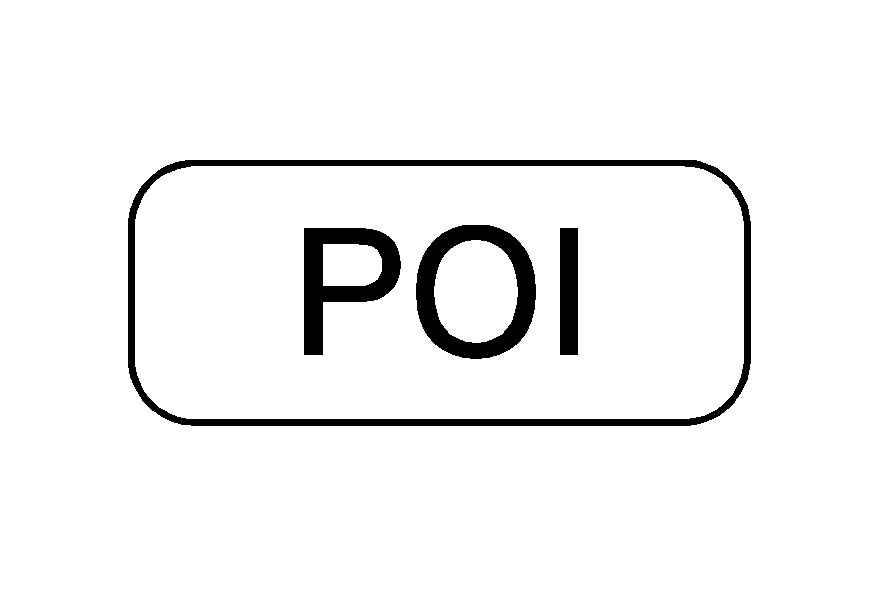
Select the POI screen button to display or delete POI icons from the map.
Displaying POI icons on the map lets you know where POIs (e.g. restaurants, gas stations, etc.) are located. This screen appears after selecting the POI screen button.
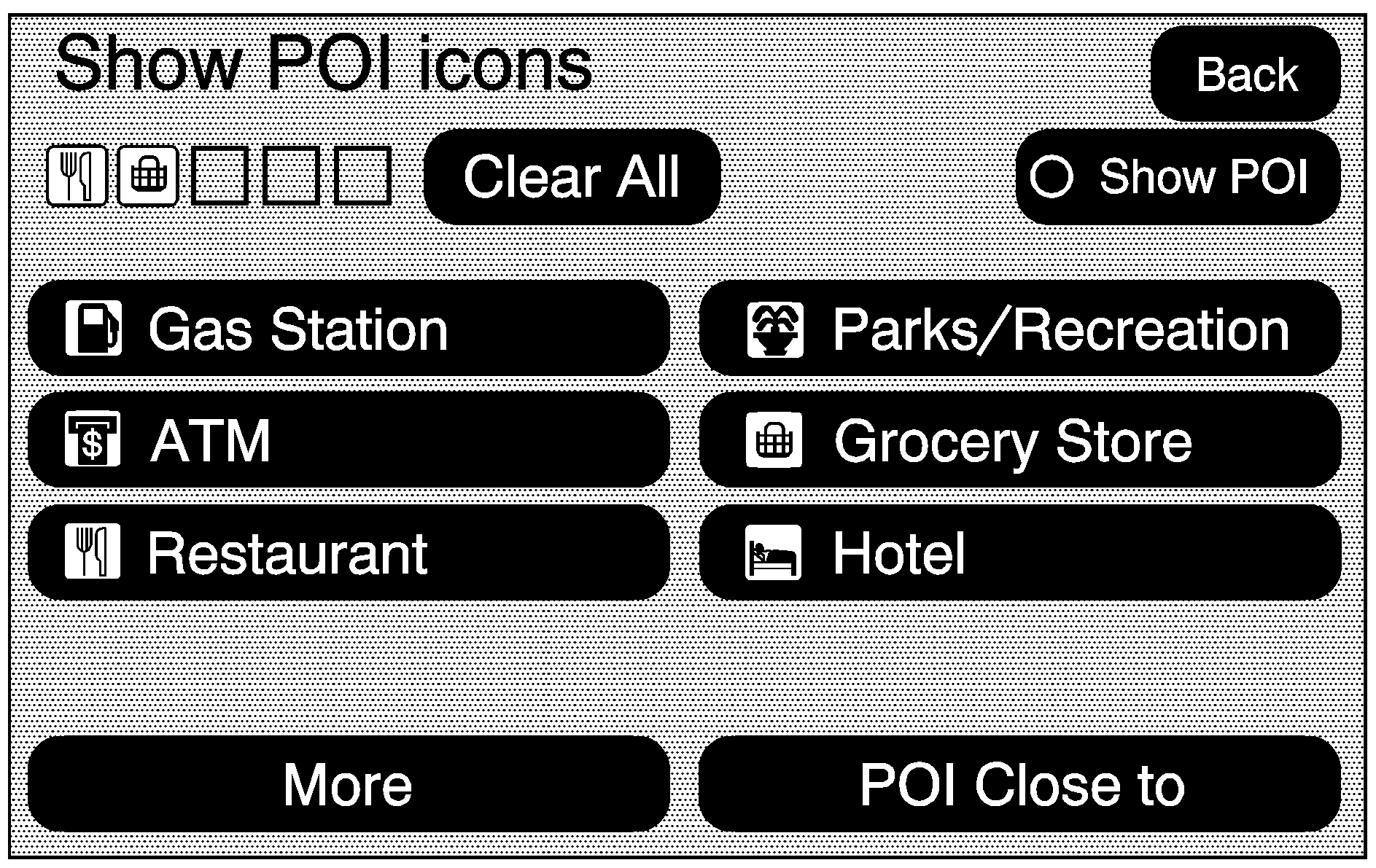
- Select one of the POI categories to display or to delete POI icons from the map screen. Once a category has been selected the POI icon displays at the top of the screen.
- Select up to five categories to display on the map screen. When a category is selected those POI icons display on the map.
- Press the POI screen button again to add more POI icons.
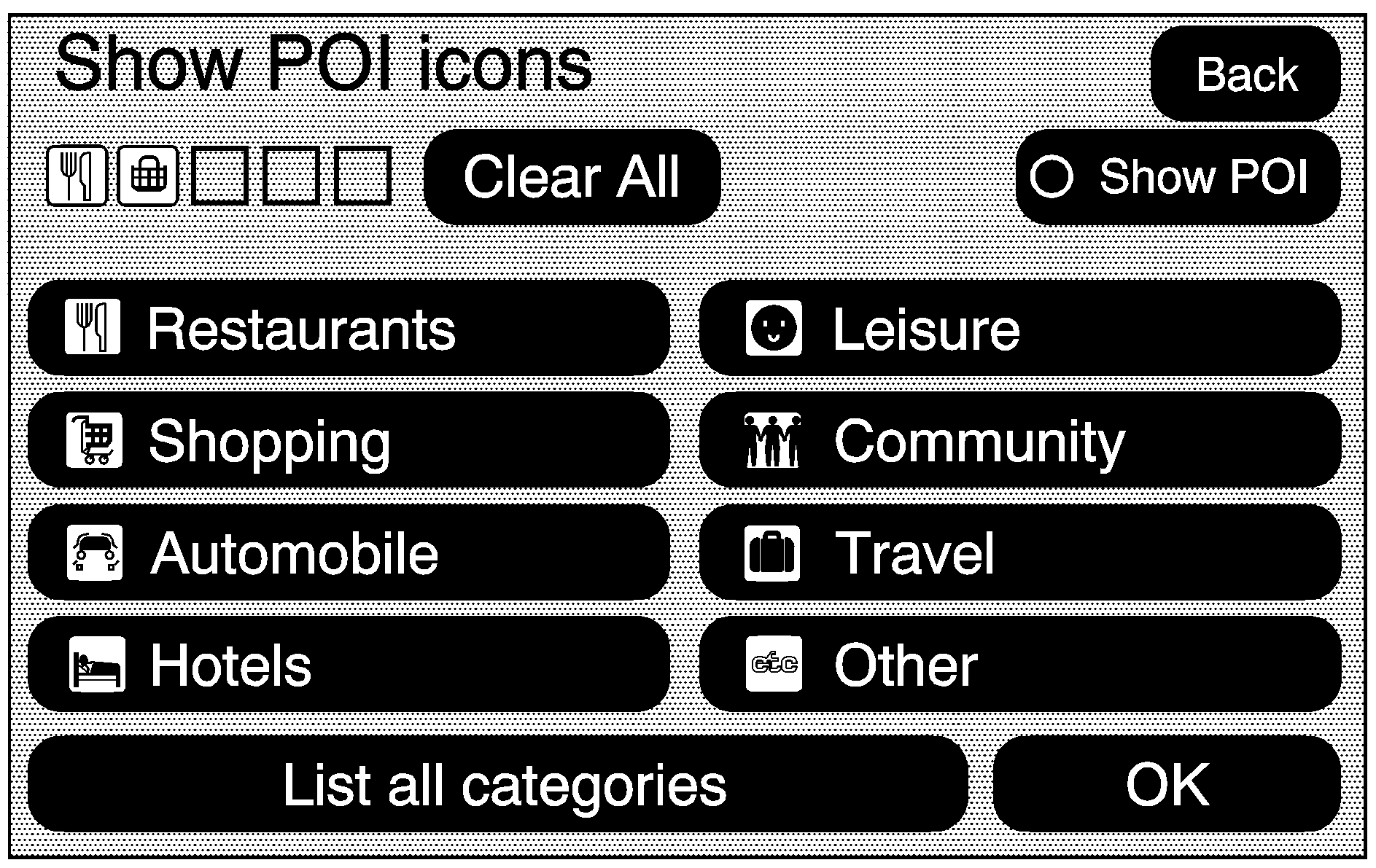
POI Close to:
- Once a category has been selected, touch this button to display the list of available POIs for the selected POI categories. The list provides the POI icon, the name, the direction, and the distance to the POI from your vehicle's current position.
- Use the scroll arrows to move up and down the list.
- Use the sorting screen buttons: Dist (distance), Icon, Name, and on Route as needed.
Select a POI name to receive information about the POI. From this screen you can select: Address Book, Go, or Map.
Address Book: Press to add this POI to the address book. See "Nav" under Configure Menu for information on editing address book entries.Go: Select to make this POI a destination or a stopover.
Map: Select to display the map showing the location of the POI.
OK: Select to display the map screen.
Show POI: Select to display or remove the POI icons from the map screen.
List all Categories: Select to list all POIs sorted alphabetically.
Delete: To delete a specific POI category, select the category.
Clear All: Select this screen button to clear all selected POI categories.
Driving on a Route
When a destination has been routed and you are driving on route, the map screen automatically displays the next maneuver.
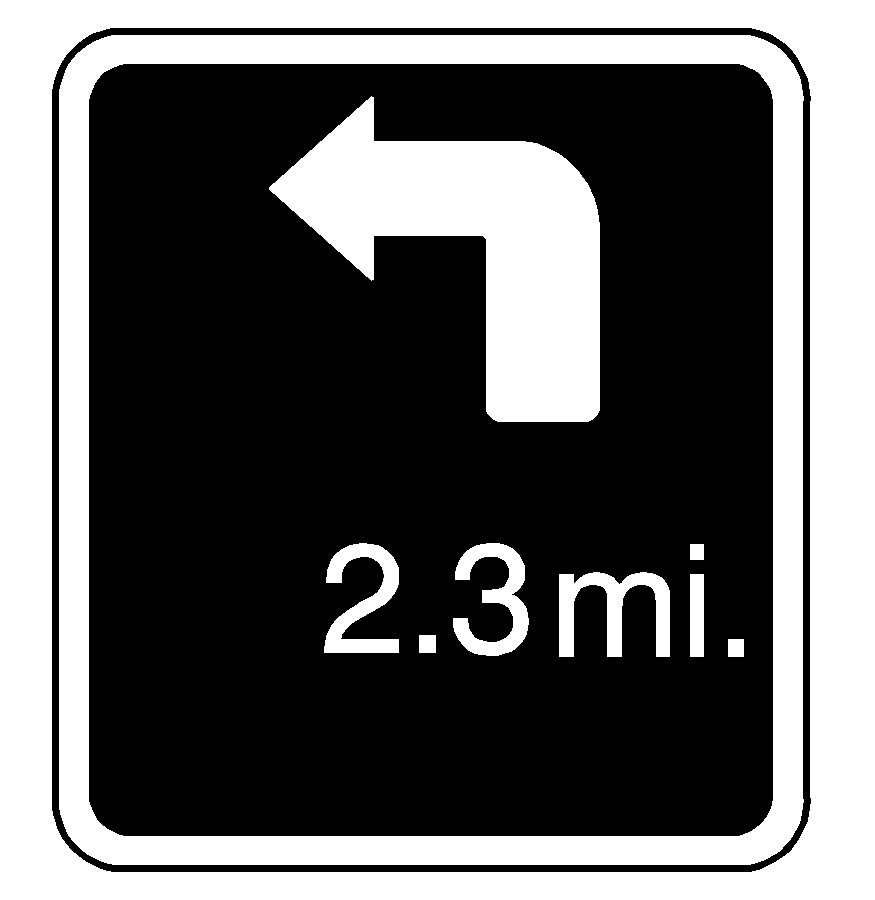
The pop-up displays the next maneuver direction and how many miles or kilometers you are from it.
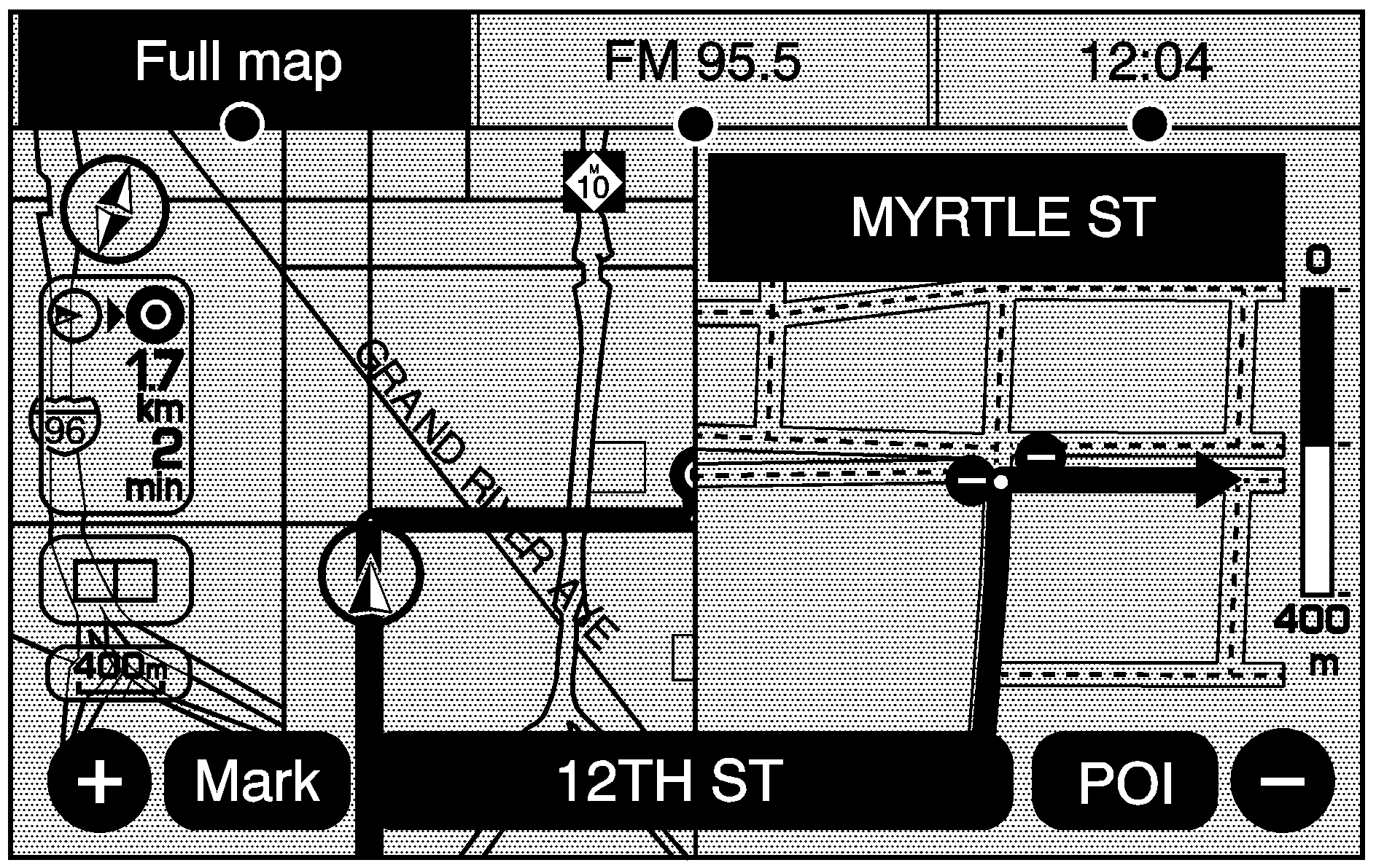
When you are approximately 1/4 mi (400 m) from the next maneuver, the screen displays the name and a detailed view of the next maneuver.
3-D Lane Guidance
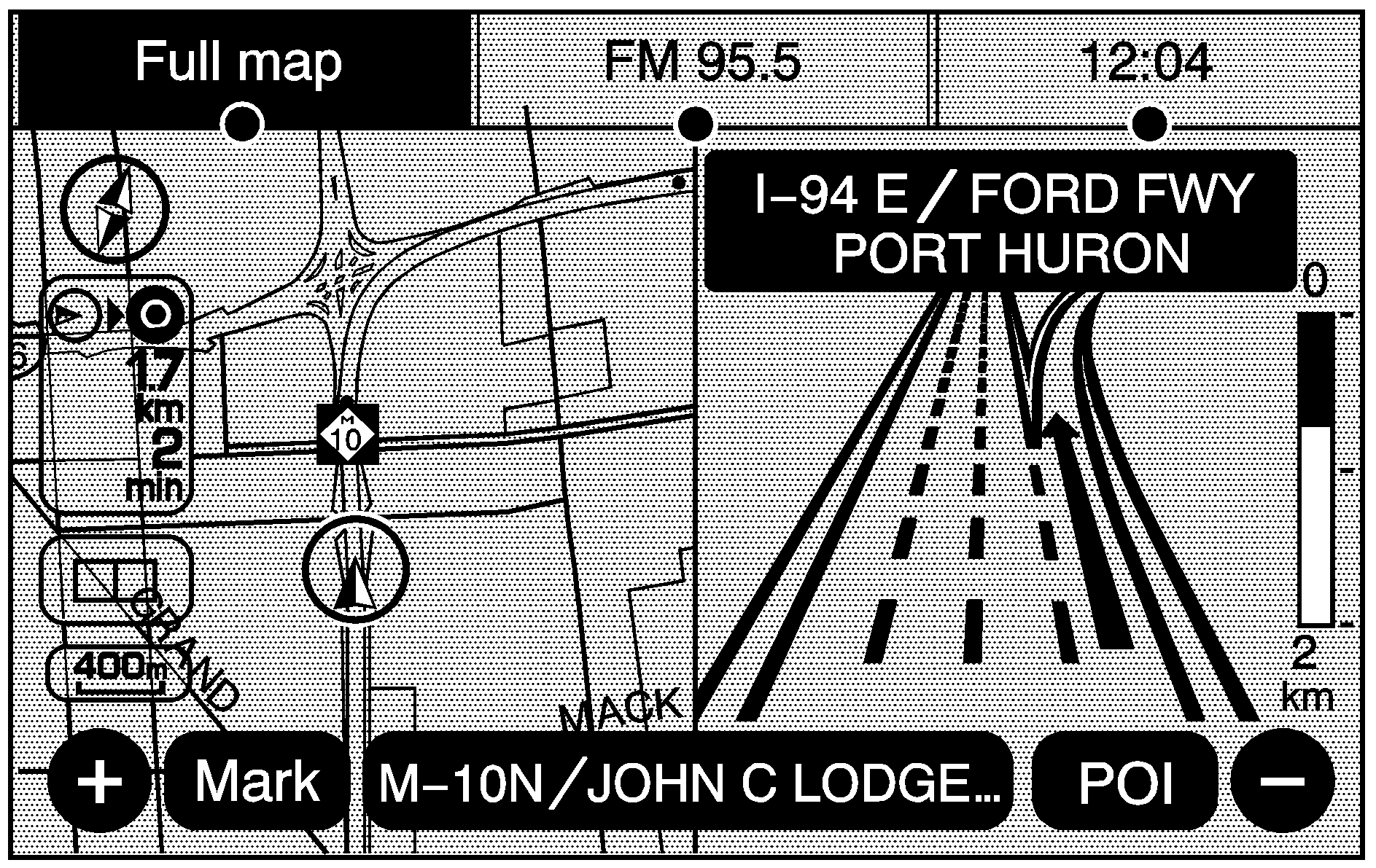
Some major metropolitan areas may include a 3-D lane guidance feature for highway exits and junctions. This feature gives you a more vivid representation of the exits and junctions on your route. Cities that include this feature are New York, Los Angeles, Chicago, Detroit, and San Francisco, and may also include Philadelphia, Washington D.C., and other major highway junctions.
Dual Mode
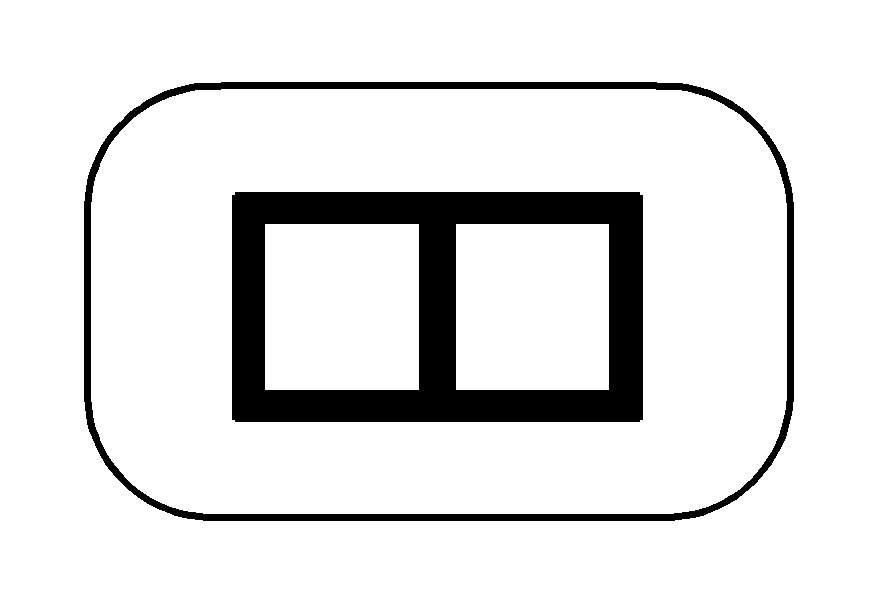
This dual screen symbol displays when the screen is in dual mode.
Dual mode displays the route on half of the screen and a maneuver or turn list on the other half. Press this button to switch between dual screen and full screen which displays the entire route.
Auto Reroute
When your destination is set and you are off the planned route, the system automatically plans a new route and begins to reroute. The new route is highlighted on the screen.
